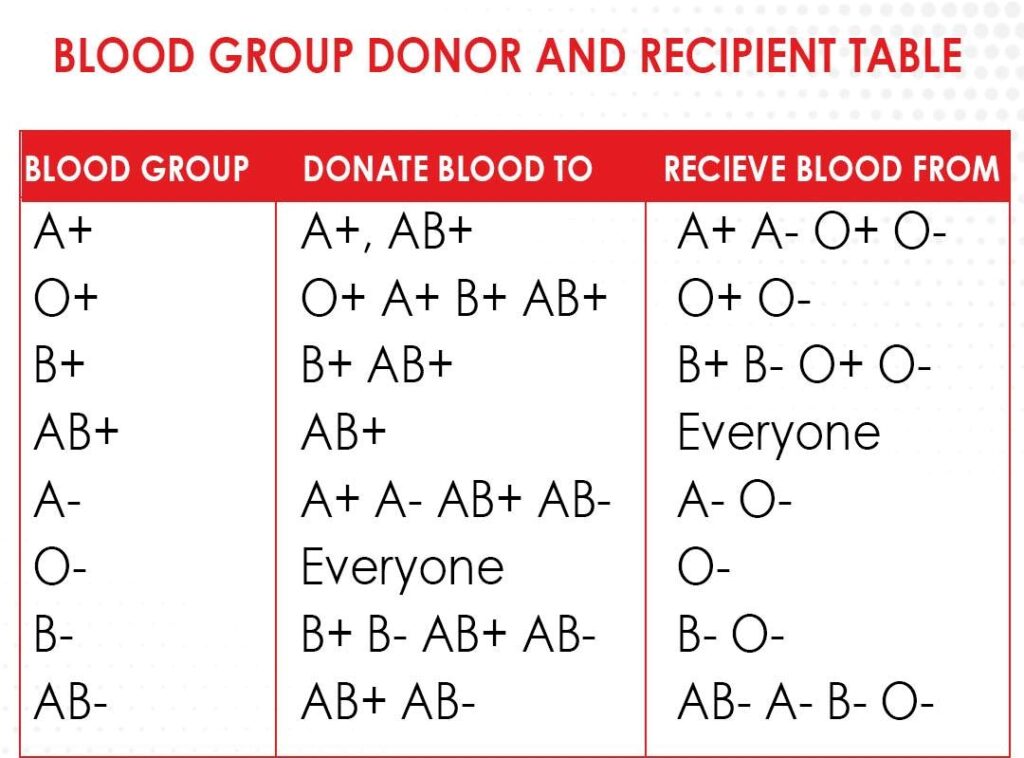Blood Types- Universal Donor and Recipients
Blood Group
There are four major blood groups determined by the presence or absence of two antigens (A and B) on the surface of red blood cells. In addition to these two antigens, there is a protein called the Rh factor, which can be either present (+) or absent (–), creating the 8 most common blood types. These are (A+, A-, B+, B-, O+, O-, AB+, AB-).
Blood Type
- A+ (A positive): has only the A antigen on red cells (and B antibody in the plasma).
- B+ (B positive): has only the B antigen on red cells (and A antibody in the plasma).
- O+ (O positive): has neither A nor B antigens on red cells (but both A and B antibody are in the plasma).
- AB+ (AB positive): has both A and B antigens on red cells (but neither A nor B antibody in the plasma).
Antigens & Antibody
An antigen is a foreign substance that enters your body. This can include bacteria, viruses, fungi, allergens, venom, and other various toxins.
An antibody is a protein produced by your immune system to attack and fight off these antigens.
Blood Types and Transfusion
- First, Blood types must be matched for a safe transfusion because the right blood transfusion can mean the difference between life and death.
- Secondly, Rh-negative blood is given to Rh-negative patients, while Rh-positive or Rh-negative blood may be given to Rh-positive patients. The rules for plasma are the reverse.
- The universal red cell donor has Type O negative blood.
- The universal plasma donor has Type AB blood.

Universal Donor & Universal Recipients
- Group AB can donate to other AB’s but can receive from all others. Hence considered as Universal Recipients.
- Group O can donate red blood cells to anybody. Hence considered as Universal Donor.
- Group B can donate red blood cells to B’s and AB’s, whereas Group A can donate red blood cells to A’s and AB’s.
- Universal donors are those with an O- (O negative) blood type because O negative blood can be used in transfusions for any blood type. The universal red cell donor has Type O negative blood.
- The universal plasma donor has Type AB blood.
Determination of Blood Type
Blood type is passed genetically from your parents, so it is inherited. Therefore, whether your blood group is type A, B, AB, or O depends on the blood types of your mother and father. It is passed genetically as listed below:
Blood Type (Parent 1 + Parent 2) Possible Blood Type of child O + O O O + A O or A A + O O or A A + A O or A B + B O or B B + AB A, B or AB AB + B A, B or AB AB + AB A, B or AB
Read also…
MENDEL’S LAW OF INHERITANCE
CYTOPLASMIC INHERITANCE